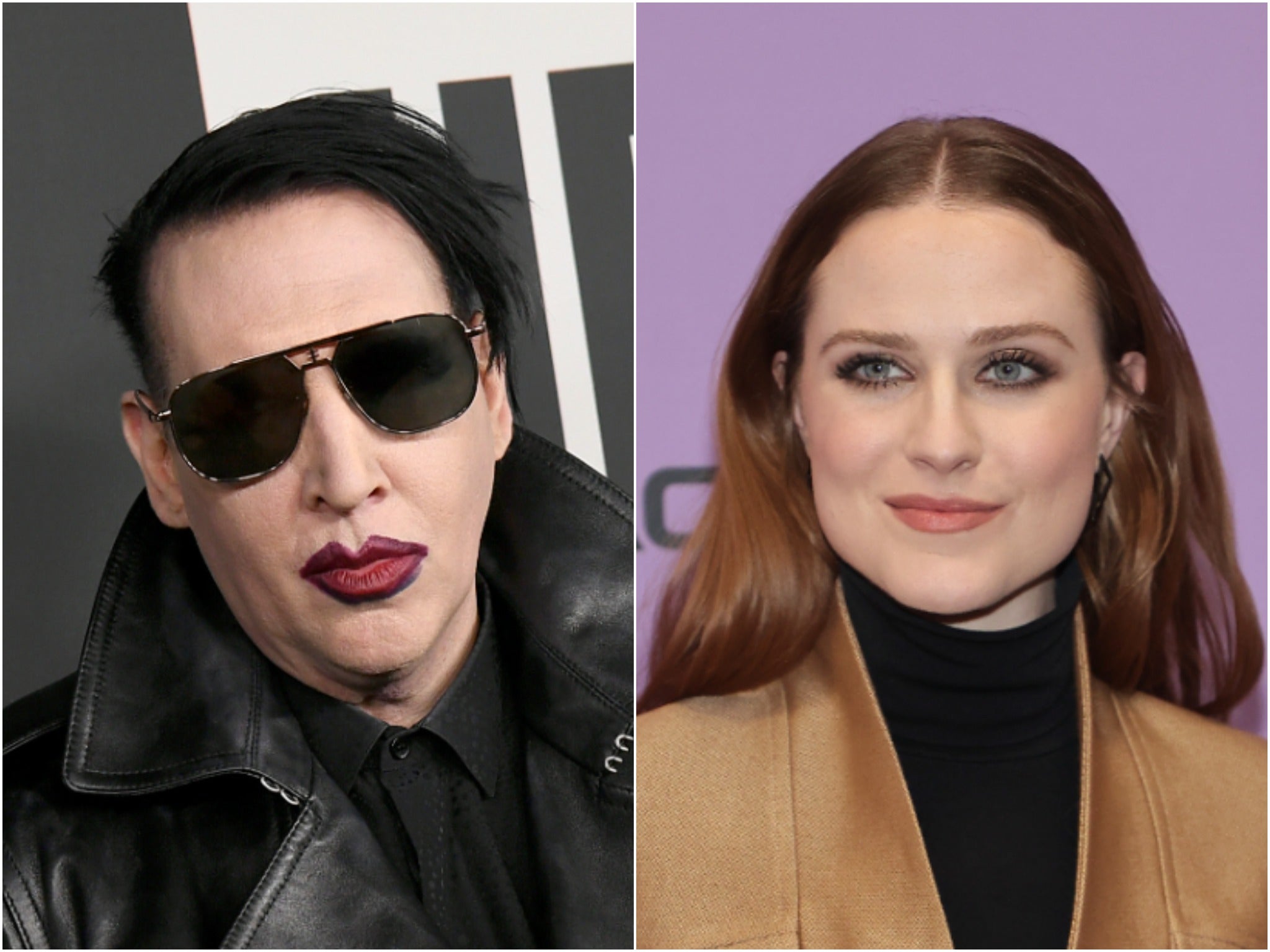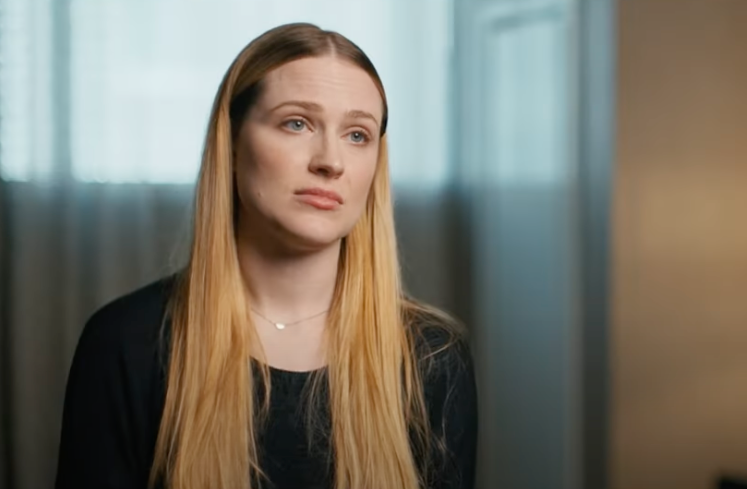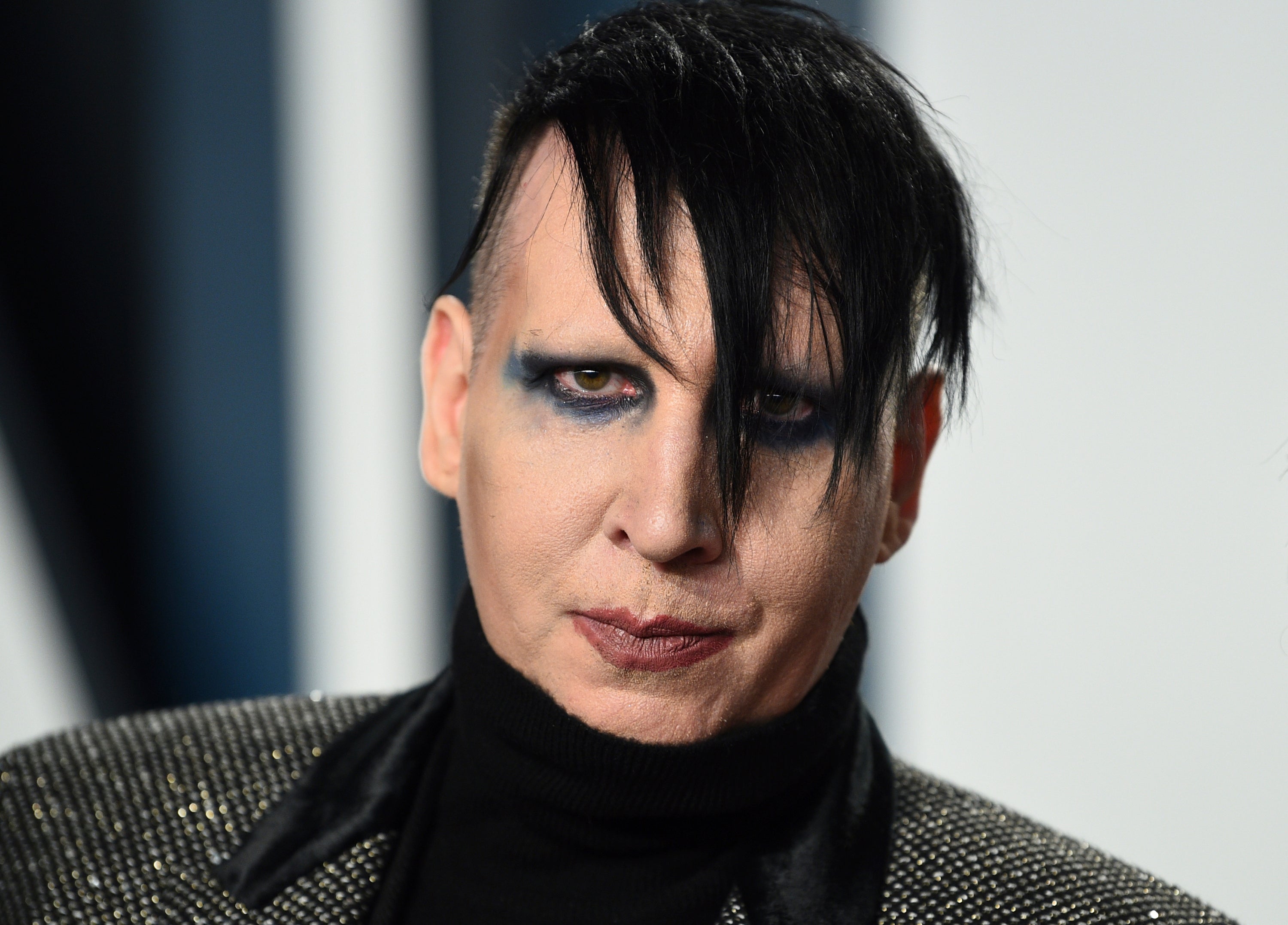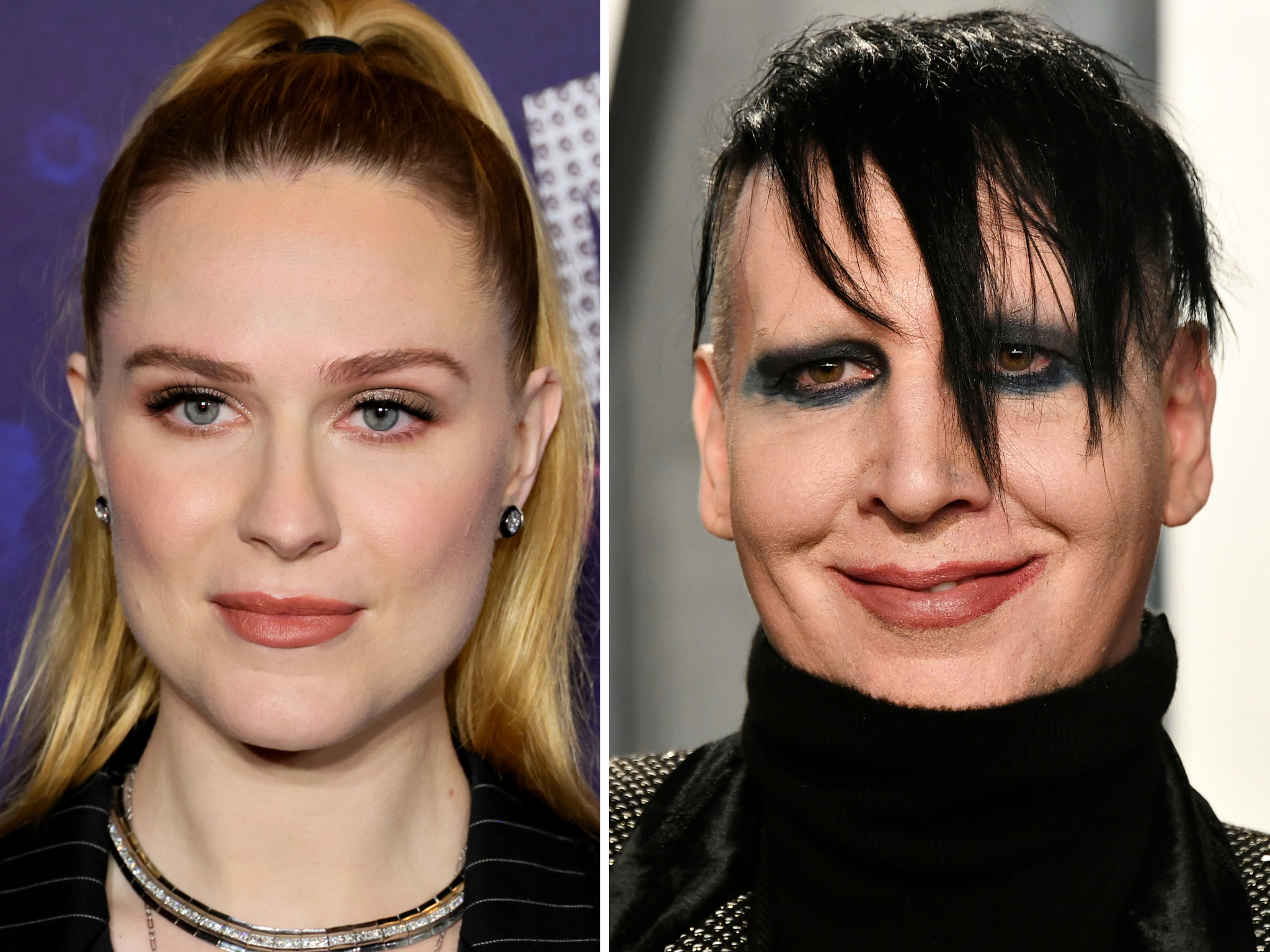Marilyn Manson: 5 of the most shocking claims from Channel 4’s documentary
Three-part documentary explores musician Brian Warner’s relationship with fans, controversies, and allegations of abuse by former partners and ex-assistants
Your support helps us to tell the story
From reproductive rights to climate change to Big Tech, The Independent is on the ground when the story is developing. Whether it's investigating the financials of Elon Musk's pro-Trump PAC or producing our latest documentary, 'The A Word', which shines a light on the American women fighting for reproductive rights, we know how important it is to parse out the facts from the messaging.
At such a critical moment in US history, we need reporters on the ground. Your donation allows us to keep sending journalists to speak to both sides of the story.
The Independent is trusted by Americans across the entire political spectrum. And unlike many other quality news outlets, we choose not to lock Americans out of our reporting and analysis with paywalls. We believe quality journalism should be available to everyone, paid for by those who can afford it.
Your support makes all the difference.Channel 4’s three-part documentary about shock rocker Marilyn Manson airs this week, delving into the life and career of the controversial musician as well as the allegations of abuse against him.
“From his meteoric rise as the self-proclaimed ‘Antichrist Superstar’ to the chilling abuse allegations that have engulfed his career, this series dives deep into Manson’s world to separate fact from fiction,” the synopsis reads.
The first episode – featuring testimony from fans and his former bandmates – explores the musician born Brian Warner’s early career and rise to fame, as he became known around the world for his onstage antics and faced a backlash from critics who accused him of inspiring youth violence.
Meanwhile, the second episode speaks to a number of women who allege that Warner subjected them to years of physical, sexual and psychological abuse. Warner has denied all of the allegations against him and says his “intimate relationships have always been entirely consensual with like-minded partners”.
One of his accusers is Westworld star Evan Rachel Wood, who began dating Warner when she was 18 years old and he was 37. Wood publicly accused Warner of abuse in 2021, claiming that he groomed her when she was a teenager before “horrifically” abusing her for years as well as “brainwashing and manipulating” her “into submission”.
Following Wood’s claims and further allegations from more than 12 other women, Warner was dropped by his record label, Loma Vista, while his US publicist told The Independent that they would no longer be working with him.
Here are five of the most shocking claims in Channel 4’s documentary.
Warner’s alleged behaviour towards fans

In the first episode, “superfan” Jennifer Pavao recalled how she became drawn to Marilyn Manson and The Spooky Kids – the name of his band before he chose to perform under the sole name “Marilyn Manson” – as a disillusioned teenager living in Florida in the early Nineties.
“He was very charismatic and I was drawn to that,” she said. “When I watch these movies about Charles Manson and his Family, it does strike a chord where these little adoring followers are looking up to you and nobody really understands why.”
Pavao recalled how Warner and the band set up a hotline so they could speak to fans – when she got through, she apparently found herself talking to Warner, who once asked her to send him pictures of her in high school.
Enjoy unlimited access to 100 million ad-free songs and podcasts with Amazon Music
Sign up now for a 4 month free trial (3 months for non-Prime members)
Enjoy unlimited access to 100 million ad-free songs and podcasts with Amazon Music
Sign up now for a 4 month free trial (3 months for non-Prime members)
“He was really respectful… I say respectful,” she said at one point. “One of my lunchboxes he signed, and he wrote, To Jen, you cum-guzzling gutter-slut, love Marilyn.” She claimed that Warner told her to “call me daddy” as they continued to speak over the phone after she said she felt strange calling him “Marilyn”. She said the first time she saw a man’s penis in real life was when Warner allegedly exposed himself onstage.
“There was a lot that was very questionable,” she said, revealing that her father was upset that she was talking to Warner, then in his early twenties, while she was around 16 at the time. “And at the time I didn’t know enough to know that.”
Pavao said she felt uncomfortable attending a gig after Warner became more famous, and that a scene that had once felt fun was now “angry”.
“It felt very worshippy,” she said. “This isn’t a crowd that I actually feel good about being a part of.”
Warner’s friends witnessed his alleged behaviour towards women from the start
Also in the first episode, musician Tim Vaughn said he met Warner while he was playing in a band called the Prom Sluts, and that they bonded over their mutual love of pop culture.
“He had a lot of charisma,” Vaughn said. “Everything was about getting attention.”
He later commented: “He always had some kind of girlfriend or groupie, but girls were exploitation, girls were meant to be used as objects, things. I’ve seen him be not very kind to girls.
“Maybe some girl comes up, wants an autograph…. There was a lot of ‘fat girl’, ‘ugly girl’. He was someone who was very superficial and would pick somebody apart,” he continued. “I’m not trying to sound like the sweetest guy in the world, but it was wrong.”
Evan Rachel Wood’s account of making the ‘Heart-Shaped Glasses’ music video

Evan Rachel Wood said she and Warner met in 2006, shortly after she had left home, having risen to fame for films such as Thirteen and Running With Scissors. Shortly after she and Warner began dating, when she was 18 and he was 37, she said she made a joke about their age discrepancy by turning up to see him while wearing heart-shaped glasses similar to the poster for Stanley Kubrick’s film, Lolita.
This inspired Warner to write the song “Heart-Shaped Glasses,” which he has previously stated in a BBC Radio One interview. He asked Wood to appear with him in the music video.
Wood alleged that she was told there would be a sex scene, but the cameras and lighting would be arranged in such a way that it would be difficult to make anything out. She recalled a tense atmosphere on set because Warner was arguing with his manager and refusing to come on set. She described the attitude as: “The second we can get on that set, let’s just get it done.”
Both she and Manson had been drinking a lot, she said.
“I just remember everything escalated so far, and I felt like I was in a dream state,” Wood said in the documentary of her experience on set. “First of all, he literally just started devouring my face. It was just so aggressive, and he just started pulling my clothes off.”
She claimed that when she tried to cover herself with her arms, Warner pulled them away and told her: “Nobody’s going to be able to see you”.
Randy Sosin, who served as the video commissioner overseeing budget, production and making of the video, said that he had no interactions with Wood before the shoot and that Warner “drove the agenda for everything that happened”.

“I think we all felt like, what is actually happening… are they actually having sex?” Sosin recalled. “But, I certainly wasn’t going to ask. I’m assuming it’s consensual, I’m assuming that these people are dating, and they’re doing something that they wanna be controversial about. They were under covers, but it certainly looked to everyone like they were having sex.”
“From there, it just didn’t stop,” Wood claimed. “They yelled cut. The next thing I knew, the entire crew walked on set. And I was sitting on the bed naked, just crying.”
“I felt so f***ing violated, but I didn’t call it rape for like, many many years.”
“I do believe her,” Sosin said of Wood’s claims. “I didn’t know it was against her will, I didn’t know that she felt raped. None of that came up. It’s so complicated… I’m not expunging myself from anything, but I can’t say there was any malice… none of us showed up like, we’re gonna get her. At the time, I thought these were two consenting adults, doing what they were doing as a couple.”
Wood said the music video incident was a “big moment” in her relationship with Warner where things began to deteriorate: “That’s when I started to see more [of] the depravity.”
Warner’s lawyer Howard King commented in the episode: “It’s demonstrably false that Brian Warner raped Evan Rachel Wood while filming a music video.
“This was filmed in a studio, there were more than 10 people filming within three feet of the bed. Brian had clothes on – although I suppose that wouldn’t prevent this – but none of those people have come forward and said that they witnessed this act. It’s completely fabricated, and there’s not a witness who will support it.”
Insights on to Warner’s childhood

In episode two, Wood calls Warner’s dad “about as inappropriate as he was”, as the documentary explores the musician’s childhood in Canton, Ohio.
Wood said that on the “very rare” occasions they visited Warner’s parents, he would typically spend more time with his father, whom she called “just as inappropriate as [Warner] was”.
“He only spoke very briefly about his childhood,” she continued. “I don’t know what his relationship with his mum was like – he alluded to it being strange.
“He mentioned that his mum – when his dad was away – would call him by his dad’s name, that he was sort of the stand-in for his father. Seemed sad.”
In an archive interview, which was played during the episode, Manson called his father “violent, erratic, driven… which I realise now, OK, that’s me.”
Warner’s childhood friend Scott Wade, who attended school with him, made similar comments about his father: “His dad could just say something that would sort of shock you a little bit… he could push you past your comfort zone.”
“Like his dad,” he added, “Brian likes to cross boundaries.”
Of his and Warner’s friendship, he remarked: “We never really fit in with our class because they all seemed like they were going along with things, were enjoying things, and we were off drawing Blue Oyster Cult symbols on the desk.
“We didn’t really hang out, we didn’t go to their parties, things like that.”
Wood says Warner’s album The High End of Low was written while she was ‘trapped’ in his house

Wood claimed that two of Warner’s Marilyn Manson albums – 2007’s Eat Me, Drink Me, and 2009’s The High End of Low – serve as timestamps for the beginning and eventual breakdown of their relationship.
“If Eat Me, Drink Me was the love album, The High End of Low was the abuse album,” she said. “A lot of [The High End of Low] was written and made when I was trapped in the house and living out some of the worst days of my entire life.”
She recalled a “very specific day” at Warner’s home in Glencoe, California, where she alleged that he had forced her to stay awake for three days, “maybe even four”, when he locked himself in the bathroom and began “blasting” the Radiohead song “Exit Music”.
Wood alleged that Warner told her this was the song he planned on playing if he ever took his own life, causing her distress as she began trying to get into the bathroom. Warner eventually opened the door, she said, and told her to accompany him up to his art room.
“The thing that always scared me the most about him and our time together was this really romanticised idea about suicide,” she said.
“After you’re up for three days and borderline hallucinating at this point… and I’d been in the house for so long and was completely broken down. I think your logic at that point is, ‘I know I can’t say no to this person… Maybe he won’t go through with it, but I have to show I’m loyal. So I grabbed a pair of ruby slippers and my father’s poetry book, and these were the items I was taking with me if I died.”
Wood alleged that Warner made her cut her wrists before pouring fake blood over the wounds, then forced her to lie there while he took photos of her. She alleged that he sent these photos to people: “[He] told them, ‘Oh Evan slit her wrists to get my attention,’” she said.
“It was a way for him to show, ‘Look how crazy Evan is, and look what I’m having to deal with.’ Feeding into this narrative he relied on with all the girls: ‘Oh my god, she’s a drug addict, she’s crazy, she’s the one who’s making me not able to work…. Look at this, look at what I have to deal with.’
“It was one of the worst days of my life, for sure,” she said.

Later, Wood remarked: “There are all these terrible things that he’s done physically, to me or my body, but I swear to god, it’s what he does to your mind and your psyche, that is the most damaging.
“It’s relentless. It’s a constant stream of information, ideas, and his facts, and his views on the world, and his views on you and what you should be doing and how he’s the answer to all your problems, and he just knew how to run you around in circles until you were so exhausted that you just gave in.”
Marilyn Manson: Unmasked airs on Channel 4 at 10pm on Tuesday 14 January, Wednesday 15 January and Thursday 16 January.
Rape Crisis offers support for those affected by rape and sexual abuse. You can call them on 0808 802 9999 in England and Wales, 0808 801 0302 in Scotland, and 0800 0246 991 in Northern Ireland, or visit their website at www.rapecrisis.org.uk. If you are in the US, you can call Rainn on 800-656-HOPE (4673)
